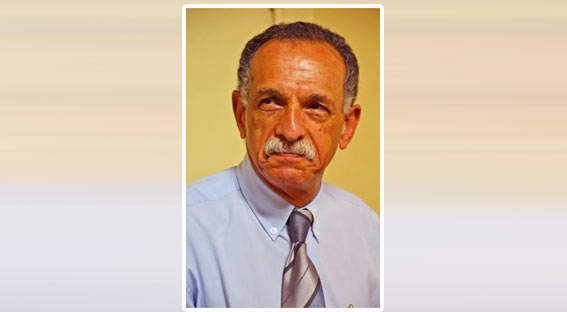I wrote earlier this year about the pains of traffic in Egypt. I highlighted a number of flaws, among them those that owe to inadequate driver training, poor road planning, or the failure of authorities to enforce traffic rules firmly and vigilantly. Traffic police appear to opt for a strategy of randomly pouncing on traffic violators and catching them red handed, as if that was the only way, to the exclusion of all others, to achieve discipline on the road.
Today I focus on other aspects of traffic-related suffering of which I am confident relevant authorities and planners are aware. Yet they fail to address them simply because they are not directly impacted by them. How could they possibly suffer from these traffic problems when they do not drive themselves but are chauffeured around smoothly and swiftly over roads secured for their passing, totally oblivious to any traffic rules? Such passengers never have to worry about reaching destinations on time, or where to park their vehicles. I must own that I have for long wished that Egypt would follow the example of many developed countries which allow those in authority to use official vehicles and chauffeurs only in the scope of their public work. Officials frequently drive their own cars when not on duty, contending with the roads, traffic, fellow drivers, and full driving experience firsthand. Accordingly, they form their views not basing on official reports alone, but through personal exposure to the complete range of difficulties and suffering. That way, their assessments and decisions are based on reality. Following are examples of traffic difficulties most probably never experienced by officials.
Last year, the east Cairo suburb of Heliopolis was the site of huge construction works that involved the building of several flyovers on main roads and intersections, and the widening of main roads. The aim was to achieve traffic fluidity, especially given the growing urban expansion east of Cairo on the Cairo Suez Road and all the way to the New Administrative Capital some 45km east of Cairo. Following a four-month-long period of major inconvenience incurred by Heliopolis residents on account of the gigantic construction, the objective of traffic fluidity was achieved. Yet it did not herald an end to the suffering; once the work was over, parking spaces in the newly widened roads were reduced. Prior to widening, when the roads featured a mere two lanes, some of them accommodated parking perpendicular to the pavement. Now that they are five-lane roads, parking is only allowed parallel to the pavement. It does not take much imagination to figure out the torture drivers go through on account of the reduced parking spaces imposed by an intransigent traffic authority that never even provided alternative parking spaces or parking lots. Again, officials boast of the new flyovers and the traffic fluidity, but are unable to sense the injustice inflicted on the residents of and visitors to Heliopolis, who were usurped of half of their parking spaces. How can they sense that when they do not suffer the same pain?
Another outstanding issue is that of speed limits. Understandably, speed limits are imposed to ensure discipline and security over main roads and highways, restraining out-of-control drivers and speed freaks. However, we need explanation concerning a seemingly inexplicable issue: some highways carry signposts that declare a speed limit of 90km/hr, only for the driver to find himself or herself farther on before another signpost that specifies a 60km/hr speed limit. No reason is ever given for the change. Surprised drivers mostly fail to abide by these sporadic signposts, whether voluntarily or involuntarily. In all cases, they are penalised for speed violation. Is it an ambush by traffic departments to collect the largest fines?
The 50km/hr speed limit in al-Azhar Tunnel is another flagrant example of inexplicable traffic rules. Al-Azhar Tunnel runs under the neighbourhood of al-Azhar and connects Salah Salem Street which runs from Cairo Airport in the east to central Cairo. The speed limit imposed by the traffic department inside the tunnel is not realistic and does not match the flow allowed by the tunnel. Drivers do not abide by the speed limit; they are calling on the traffic authority to revise it so they could respect it.
Another grave problem that officials are out of touch with is that of road intersections in Downtown Cairo, which contribute to traffic jams and blockages, adding to the suffering of drivers. Curiously, the problem occurs and recurs despite traffic lights and the presence of traffic policemen; but they are obviously not trained to deal with that problem. As a given traffic light goes green, vehicles rush through but, because of the heavy traffic, very soon pile up, blocking the intersection. When the traffic light turns green for those travelling on the perpendicular road, they cannot get through because of the impasse. It does not take a traffic expert to realise that even if the lights are green, vehicles should not be allowed to reach the intersection when there is a standstill, since this effectively blocks both intersecting roads. It is common knowledge that in developed countries, the intersection is painted in diagonal stripes, indicating it as an area where no vehicle should stop. But apparently, this too is a phenomenon unknown to road planners, traffic officers, or drivers in our country. And, of course, this is another problem rarely or never encountered by officials in Egypt.
This is but another batch of the failures on our roads and the suffering we daily incur. But this is neither the first nor will it be the last as long as the gap between the lawmakers and the public persists.
Watani International
15 May 2020










